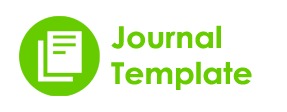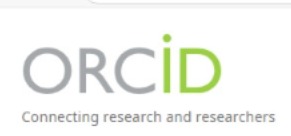Navigating Changes In The Digital Learning Environment For Islamic Education Leadership
DOI:
https://doi.org/10.63889/pedagogy.v18i1.307Keywords:
educational, leadership, digital learning, digital transformation, educational innovationAbstract
Digital transformation in the world of education has brought significant changes to the way we learn, teach, and lead in the school environment. The speed of technology adoption as well as the paradigm shift towards digital-based learning requires education leaders to adjust their strategies and approaches. In this context, educational leadership is not only required to be able to understand technology, but also needs to build an organizational culture that is adaptive, collaborative, and inclusive. This change poses new challenges in education governance that require serious attention from academics and education practitioners. While many studies have addressed the integration of technology in learning, there is still a research gap in understanding how education leaders navigate digital change strategically and holistically. Most studies tend to focus on teachers and students as users of technology, while the crucial role of education leaders in designing visions, policies, and digital learning climates is still underexplored. This is important considering that leadership that is responsive to digital changes greatly determines the success of innovation implementation in educational institutions. This study uses a descriptive approach with content analysis techniques to review various documents, scientific articles, educational policies, and reports on leadership practices in a digital learning environment. The data is systematically analyzed to identify leadership patterns, adaptation strategies, and challenges faced by education leaders in managing technology-based change. Through this approach, the research seeks to provide an in-depth understanding of leadership dynamics in the context of educational digitalization. The benefit of this research is that it makes a theoretical and practical contribution to the development of educational leadership models that are adaptive to digital change. The results of the research are expected to be a reference for policymakers, school principals, and academics in formulating leadership approaches that are more relevant to the demands of the times. Thus, the digital learning environment can be optimally utilized to improve the quality of education sustainably.
References
[1] Riska Aini Putri, “Pengaruh Teknologi dalam Perubahan Pembelajaran di Era Digital,” J. Comput. Digit. Bus., vol. 2, no. 3, pp. 105–111, 2023, https://doi.org/10.56427/jcbd.v2i3.233.
[2] R. Rahayu, S. Iskandar, and Y. Abidin, “Inovasi Pembelajaran Abad 21 dan Penerapannya di Indonesia,” J. Basicedu, vol. 6, no. 2, pp. 2099–2104, 2022, https://doi.org/10.31004/basicedu.v6i2.2082.
[3] U. Ulfah, Y. Supriani, and O. Arifudin, “Kepemimpinan Pendidikan di Era Disrupsi,” JIIP - J. Ilm. Ilmu Pendidik., vol. 5, no. 1, pp. 153–161, 2022, https://doi.org/10.54371/jiip.v5i1.392.
[4] M. Amin and I. Muttaqin, “Karakteristik Kepemimpinan Pendidikan Islam Ideal di Era Digital,” Arfannur, vol. 3, no. 1, pp. 21–30, 2022, https://doi.org/10.24260/arfannur.v3i1.625.
[5] Taufikurrahman, “Kepemimpinan Kepala Sekoah DIera Digital,” Semin. Nas., vol. 6, no. 1, pp. 1–7, 2018.
[6] A. E. Budiyono, “Peran Kepemimpinan Kepala Sekolah Dalam Pendidikan Karakter Peserta Didik Di Era Digital,” NUSRA J. Penelit. dan Ilmu Pendidik., vol. 4, no. 3, pp. 755–765, 2023, https://doi.org/10.55681/nusra.v4i3.1448.
[7] Isjoni, Cooperative Learning Efektivitas Pembelajan Kelompok, vol. 1. Bandung: Alfabeta, 2010.
[8] S. Muldiah, “Urgensi Pendidikan Karakter Bagi Mahasiswa Di Era Digital,” J. Ilm. Pendidik. dan Keislam., vol. 3, no. 2, pp. 241–248, 2023, https://doi.org/10.55883/jipkis.v3i2.75.
[9] J. P. Sari, J. Setio, R. Satria, F. Oviyanti, and M. Maryamah, “Tantangan Madrasah Di Era
Digital: Transformasi Pendidikan Agama Islam Dalam Konteks Teknologi,” J. Mudarrisuna Media Kaji. Pendidik. Agama Islam, vol. 14, no. 2, p. 211, 2024, https://doi.org/10.22373/jm.v14i2.23489.
[10] M. Hayati et al., “Transformasi Pendidikan Agama Islam di Era Digital: Perspektif Sosial dan Tantangan Kontemporer,” Concept J. Soc. Humanit. Educ., vol. 2, no. 4, pp. 224–235, 2023, https://doi.org/10.55606/concept.v2i4.797.
[11] A. M. Alfi, A. Febriasari, and J. N. Azka, “Transformasi Pendidikan Agama Islam Melalui Teknologi,” J. Relig. J. Agama, Sos. dan Budaya, vol. 1, no. 4, pp. 511–522, 2023.
[12] L. Hakim, “Transformasi Pendidikan Agama Islam : Strategi Dan Adaptasi Pada Era Revolusi Industri 4 . 0,” J. Educ. Dev., vol. 9, no. 4, pp. 760–766, 2021.
[13] F. Hikmawati, Metodologi Penelitian, vol. 11, no. 1. 2019.
[14] R. B. J. L. Christensen, Educational Research Quantitative, Qualitative and Mixed Approaches, vol. 11, no. 1. 2019.
[15] L. M. and K. M. Louis Cohen, Research Methods in Education. 2015.
[16] NF Andhini, Metode Penelitian Kualitatif Dan Kuantitatif., vol. 53, no. January. 2017.
[17] E. a. Fiantika, Wasil M, Jumiyati, Honesti, Wahyuni, Jonata, Metodologi Penelitian Kualitatif. In Metodologi Penelitian Kualitatif, no. Maret. 2022.
[18] D. Rakhma, A. Damayanti, and A. Ridwan, “Perubahan Sosial dan Pendidikan dalam Peran Guru PAI di Era Digital,” vol. 02, no. 02, pp. 123–138, 2024.
[19] Verdinandus Lelu Ngongo; Taufiq Hidayat; Wiyanto, “Pendidikan Diera Digital,” High. Educ. Digit. Age, pp. 628–638, 2013, https://doi.org/10.1515/9781400866137.
[20] R. Awaliati, “Tantangan Guru Indonesia Pada Abad 21,” Univ. Lambung Mangkurat Banjarmasin, vol. 21, pp. 1–6, 2022, https://doi.org/10.31237/osf.io/3qu7b.
[21] E. Tarihoran, “Guru Dalam Pengajaran Abad 21,” SAPA - J. Kateketik dan Pastor., vol. 4, no. 1, pp. 46–58, May 2019, https://doi.org/10.53544/sapa.v4i1.68.
[22] M. Muhali, “Pembelajaran Inovatif Abad Ke-21,” J. Penelit. dan Pengkaj. Ilmu Pendidik. eSaintika, vol. 3, no. 2, p. 25, Dec. 2019, https://doi.org/10.36312/e-saintika.v3i2.126.
[23] D. Fajriyani, A. Fauzi, M. Devi Kurniawati, A. Yudo Prakoso Dewo, A. Fahri Baihaqi, and Z.
Nasution, “Tantangan Kompetensi SDM dalam Menghadapi Era Digital (Literatur Review),” J. Ekon. Manaj. Sist. Inf., vol. 4, no. 6, pp. 1004–1013, 2023, https://doi.org/10.31933/jemsi.v4i6.1631.
[24] T. Wiwitan, N. Yulianita, and S. Novita, “Model Dialogis Dalam Komunikasi Pelayanan Perguruan Tinggi Swasta Di Masa Pandemi Covid-19,” Perspekt. Komun. J. Ilmu Komun. Polit.
dan Komun. Bisnis, vol. 6, no. 2, p. 175, 2022, https://doi.org/10.24853/pk.6.2.175-182.
[25] W. M. B. B. Sinaga and A. Firmansyah, “Perubahan Paradigma Pendidikan di Era Digital,” J. Teknol. Pendidik., vol. 1, no. 4, p. 10, May 2024, https://doi.org/10.47134/jtp.v1i4.492.
[26] M. H. Wening and A. B. Santosa, “Strategi Kepemimpinan Kepala Sekolah Dalam Menghadapi
Era Digital 4.0,” JMKSP (Jurnal Manajemen, Kepemimpinan, dan Supervisi Pendidikan), vol. 5, no. 1, p. 56, 2020, https://doi.org/10.31851/jmksp.v5i1.3537.
[27] S. Anwar, “Kewirausahaan Prespektif Islam (Kajian Normatif Dan Historis-Sosiologis),” J. Pedagog., vol. 13, no. 1, pp. 133–158, 2020.
[28] W. Helmina Dewi and D. Lazwardi, “Gaya Kepemimpinan Kepala Madrasah Dalam Meningkatkan Kualitas Pendidikan Pada Era Digital,” Mindset J. Manaj. Pendidik. Islam, vol. 1, pp. 54–61, 2022, https://doi.org/10.58561/mindset.v1i1.29.
[29] R. Rosita and S. Iskandar, “Gaya Kepemimpinan Kepala Sekolah di Era Digital,” J. Basicedu, vol. 6, no. 4, pp. 6005–6011, 2022, https://doi.org/10.31004/basicedu.v6i4.3127.
[30] F. R. dkk Saputra, “Transformasi Kepemimpinan Pendidikan Islam: Tantangan Dan Peluang Diera Digital,” TADBIR J. Manaj. Pendidik. Islam, vol. 12, no. 02, pp. 194–209, 2024, https://doi.org/10.30603/tjmpi.v12i2.4932.
[31] E. W. Prastyaningtyas, A. M. Almaududi Ausat, L. F. Muhamad, M. I. Wanof, and S. Suherlan,
“The Role of Information Technology in Improving Human Resources Career Development,” J. Teknol. Dan Sist. Inf. Bisnis, vol. 5, no. 3, pp. 266–275, 2023, https://doi.org/10.47233/jteksis.v5i3.870.
[32] M. R. Amalia, “The Impact of Digital Era 4.0 Transformation on Human Resources Management,” Manag. Stud. Bus. J., vol. 1, no. 1, pp. 89–98, 2024, https://doi.org/10.62207/9btfqx28.
[33] H. A. Naufal, “Literasi Digital,” Perspektif, vol. 1, no. 2, pp. 195–202, 2021, https://doi.org/10.53947/perspekt.v1i2.32.
[34] D. Ririen and F. Daryanes, “Analisis Literasi Digital Mahasiswa,” Res. Dev. J. Educ., vol. 8, no. 1, p. 210, 2022, https://doi.org/10.30998/rdje.v8i1.11738.
[35] L. A. Khairani, “Kepemimpinan Kepala Sekolah Dalam Pendidikan Principal Leadership in Character Education of Students in the Digital 4 . 0 Era,” Pros. Semin. Nas. Pendidik. Univ. Negeri Medan, Jl. Willem Iskandar, 20221, Indones., vol. 1, pp. 1–20, 2022.
[36] T. K. Akbar and A. M. Atmojo, “Progresifisme Nilai-Nilai Risalah Islam Berkemajuan : Studi
Implementasi Dakwah Kultural Di Universitas Muhammadiyah Gombong,” Al Mikraj J. Stud.
Islam dan Hum., vol. 5, no. 1, pp. 419–432, 2024, https://doi.org/10.37680/almikraj.v5i01.5848
[37] S. Syamsuri, Y. Sa’adah, and I. A. Roslan, “Reducing Public Poverty Through Optimization of
Zakat Funding as an Effort to Achieve Sustainable Development Goals (SDGs) in Indonesia,” J. Ilm. Ekon. Islam, vol. 8, no. 1, p. 792, 2022, https://doi.org/10.29040/jiei.v8i1.3872.
[38] P. Diawati, S. S. Gadzali, M. K. N. Abd Aziz, A. M. Almaududi Ausat, and S. Suherlan, “The Role of Information Technology in Improving the Efficiency and Productivity of Human
Resources in the Workplace,” J. Teknol. Dan Sist. Inf. Bisnis, vol. 5, no. 3, pp. 296–302, 2023, https://doi.org/10.47233/jteksis.v5i3.872.
[39] R. M. Saputri, A. Rinenggo, and S. Suharno, “Eksistensi Tradisi Nyadran Sebagai Penguatan Identitas Nasional Di Tengah Modernisasi,” Civ. Educ. Soc. Sci. J., vol. 3, no. 2, p. 99, 2021, https://doi.org/10.32585/cessj.v3i2.2080.
[40] L. T. Sutrisno, T. Muhtar, and Y. T. Herlambang, “Efektivitas Pembelajaran Berdiferensiasi Sebagai Sebuah Pendekatan untuk Kemerdekaan,” DWIJA CENDEKIA J. Ris. Pedagog., vol. 7, no. 2, 2023, https://doi.org/10.20961/jdc.v7i2.76475.
Downloads
Published
How to Cite
Issue
Section
License
Copyright (c) 2025 Sholihul Anwar, Rahmat Setiawan, Sukisno Sukisno, Abdulrohim E-sor

This work is licensed under a Creative Commons Attribution-ShareAlike 4.0 International License.






